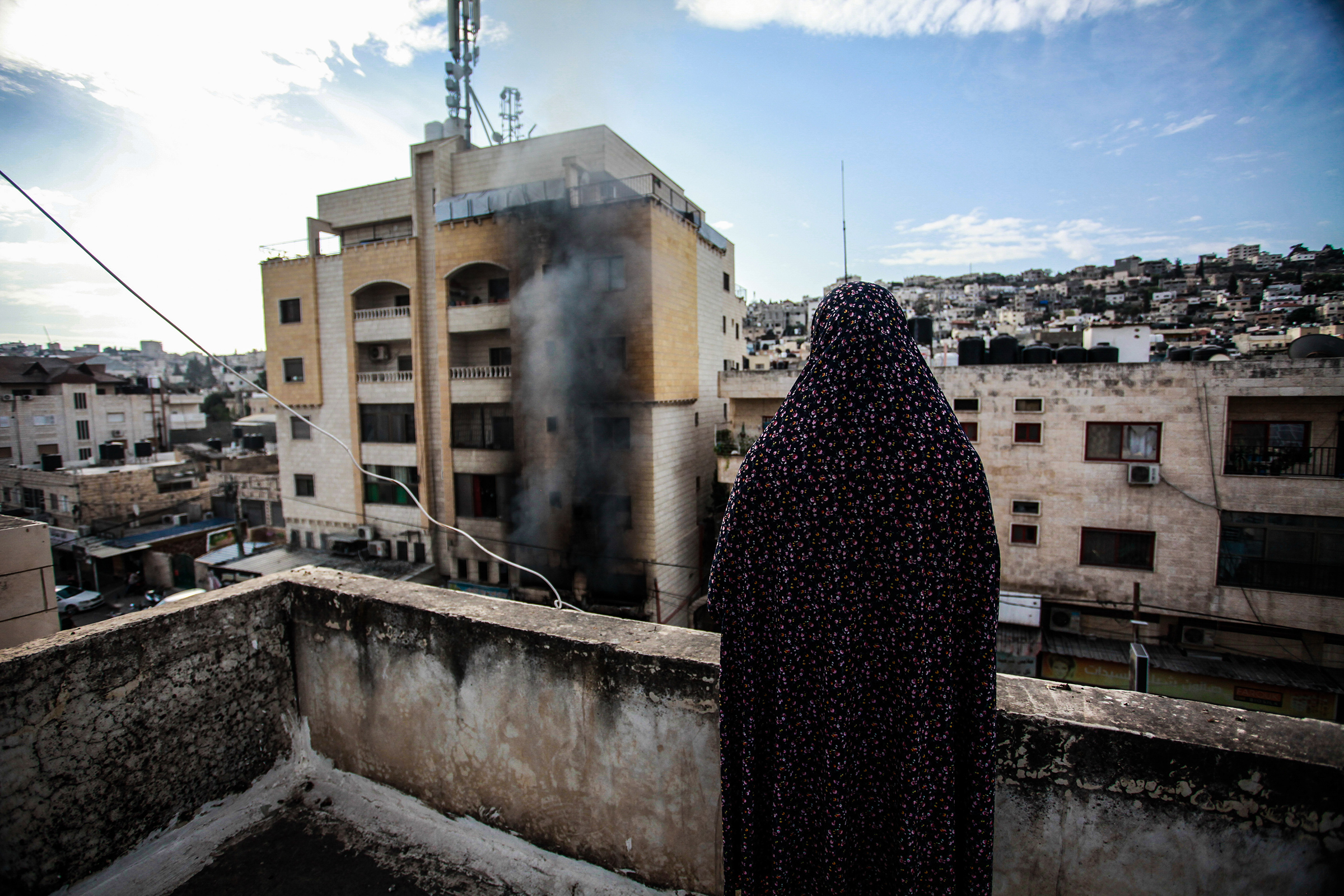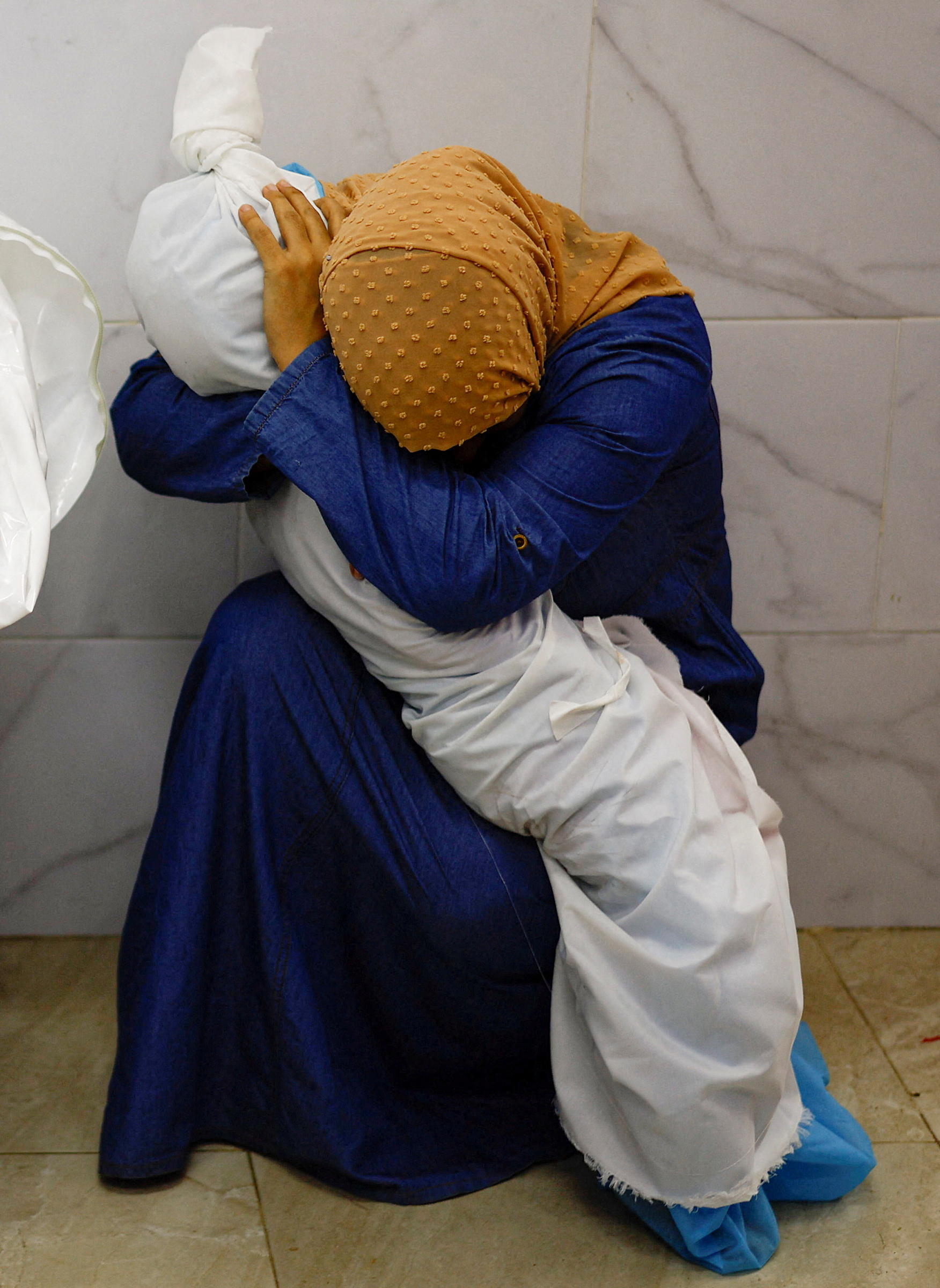
The word “thakla” (ثكلى) in Arabic refers to a parent who has lost a child, usually a grieving mother. It has appeared in classical Arabic for over 1,500 years and likely predates Islam, according to Mohamed-Salah Omri, a professor of modern Arabic literature at Oxford University.
As the war in Gaza rages on, the word has taken on new meaning amid death, destruction, and grief. At least 8,000 people have died in Gaza, over 3,000 of them children, since Israel began launching retaliatory airstrikes in the wake of Hamas’s Oct. 7 massacre that left 1,400 people dead in Israel.
Read More: ‘Our Death Is Pending.’ Stories of Loss and Grief From Gaza
“During conflicts like this a lot is almost untranslatable,” Omri says. “I think this is a particularly significant term because it doesn't really have an equivalent in English.”
The composer and performer Hamed Sinno, of the now-disbanded Lebanese band Mashrou' Leila, posted to Instagram about the word to their 116,000 followers last week. It has also appeared on many other social media posts.
The number of children killed in the last three weeks in Gaza is more than the annual total from conflicts around the world since 2019, according to Save the Children. Some 2,985 children were killed globally in violent conflicts in 2022, according to annual reports compiled by the U.N.'s Secretary-General on Children and Armed Conflict.

The word thakla carries a strong sense of bereavement and emotion that goes beyond the reality of loss, experts say. There is a whole genre of medieval Arabic poetry that focuses on the pain of bereavement. One of the most famous Arab poets from the 7th century, Al-Khansa, became known for her elegies for her two brothers who passed away. A collection of her poetry was compiled into a book called Dīwān, which was published in English in 1973.
Mourning traditions in Arab culture can often include women wailing and performing eulogies in the poetic form, or in rhyming prose. The word thakla invokes these traditions.
Read More: A Photographer Captures Death, Destruction, and Grief in Gaza
Today, the word is used more frequently in Modern Standard Arabic, a form of literary Arabic developed in the late 19th and early 20th century that is taught in formal education across the Arab world. “When you report on a mother who lost her son in this conflict, whether you happen to be writing for a Moroccan newspaper or be writing for a Yemeni newspaper, or an Egyptian newspaper, they all use the same word,” Omri says.
For many Palestinians today, Omri says, the word carries a deeper meaning. Simply existing can be a form of resistance, particularly as Israeli leaders have cast Palestinians as a "demographic threat" to the state.
In a recent TIME article, Noor Harazeen, a journalist and mother based in Gaza, said that she has struggled to cope with the frequency of children dying in airstrikes. “Some of the children reminded me of my kids. I have two kids, they are twins and they are both 5 years old,” she said. “So this is why it became really emotional for me.”
“Children are a symbol,” Omri says. “This is why the mother figure is so central. She is someone not only who holds the collective memory of the land but also as someone who gives birth to a new generation.”
More Must-Reads From TIME
- The 100 Most Influential People of 2024
- How Far Trump Would Go
- Scenes From Pro-Palestinian Encampments Across U.S. Universities
- Saving Seconds Is Better Than Hours
- Why Your Breakfast Should Start with a Vegetable
- 6 Compliments That Land Every Time
- Welcome to the Golden Age of Ryan Gosling
- Want Weekly Recs on What to Watch, Read, and More? Sign Up for Worth Your Time
Contact us at letters@time.com